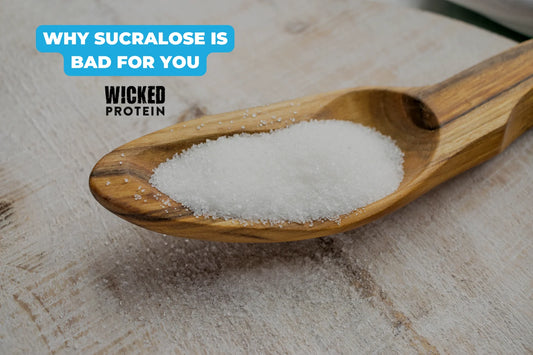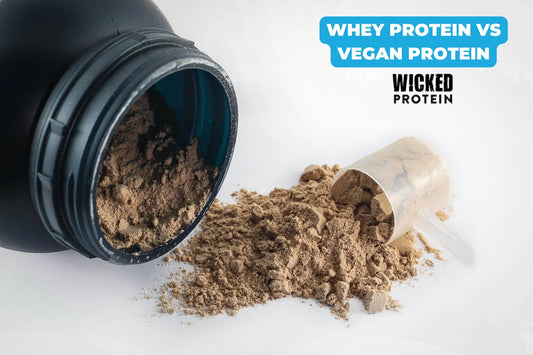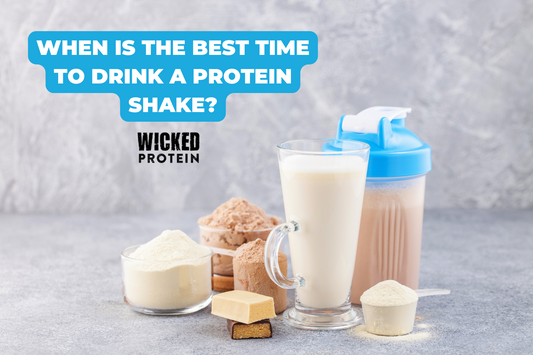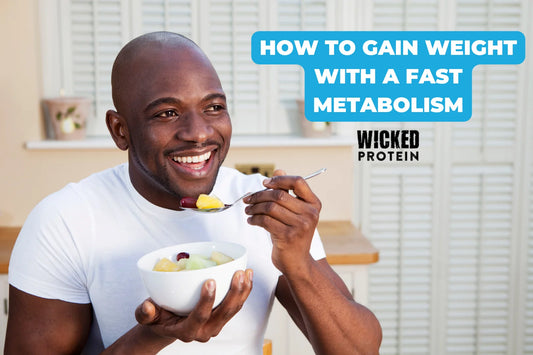
Whey Isolate vs Whey Concentrate: What’s the difference?
Are you confused about the difference between whey protein isolate and whey protein concentrate? You're not alone.
With so many protein supplements on the market, it can be challenging to know which one is right for you.
In this article, we will guide you through the key differences between these two popular options, so you can make an informed decision.
What is Whey Isolate?
Whey protein isolate is a highly processed form of whey protein that undergoes additional filtration to remove most of the lactose, fat, and other non-protein components.
This extensive filtration process results in a product with a higher protein content (usually around 90-95% protein) compared to whey protein concentrate.
The low levels of lactose and fat make it a popular choice for individuals who are lactose intolerant or following a low-fat diet.
One of the main advantages of whey protein isolate is its rapid absorption rate.
It is quickly digested and absorbed by the body, which gives the muscles a fast supply of amino acids.
This makes it ideal for post-workout recovery, as it helps to refill the amino acid stores depleted during exercise and promotes muscle repair and growth.
Plus, whey protein isolate is a leaner option as it typically contains fewer carbohydrates and calories.
So if your goal is to lose weight or maintain a lean physique, make sure to take a look at our collection of whey protein isolate powders.
Benefits of Whey Isolate
Here are some key benefits of adding whey protein isolate to your diet:
- Muscle Recovery and Growth: Whey protein isolate provides a complete amino acid profile, including essential amino acids that are necessary for muscle repair and growth.
- High Protein Content: Whey protein isolate allows you to meet your daily protein needs more efficiently. This is especially great for people who have higher protein requirements, such as athletes or those with intense daily activity.
- Low Lactose and Fat Content: Whey protein isolate is virtually lactose-free and contains minimal amounts of fat. This makes it easier to digest for individuals with lactose intolerance and helps maintain a low-fat diet.
- Fast Absorption: Whey protein isolate is quickly absorbed by the body, which means a faster delivery of amino acids to the muscles. This makes it an excellent choice for post-workout recovery or as a convenient source of protein throughout the day.
What is Whey Concentrate?
Less processed than isolate, concentrate keeps a fair share of protein (70-80%) while hanging onto more carbs, fats, and beneficial nutrients.
It's a little more balanced in terms of macronutrients and can be a pocket-friendly option.
Benefits of Whey Concentrate
Here are some key benefits of incorporating whey protein concentrate into your diet:
- Cost-effective: Whey protein concentrate is generally more affordable compared to whey protein isolate, making it a budget-friendly option for those looking to increase their protein intake without spending too much on protein.
- Natural Nutrients: Due to less processing, whey protein concentrate keeps more of the naturally occurring nutrients found in milk, including immunoglobulins and growth factors.
- Nutrient-Rich: The slightly higher levels of carbohydrates and fats in whey protein concentrate add to a more balanced macronutrient profile.
- Gut Health: The immunoglobulins and other bioactive compounds in whey protein concentrate help support a healthy gut microbiome and improve digestive function.
Whey Protein Isolate vs. Whey Protein Concentrate: Key Differences
While both whey isolate and whey concentrate have several health benefits, there are some key differences between the two that can help you choose the best one for you.
Whey Protein Isolate:
- Protein Content: Whey protein isolate goes through extensive filtration, which results in a product with a higher protein content (around 90-95% protein) compared to whey protein concentrate.
- Lactose and Fat: Whey protein isolate contains minimal lactose and fat, making it a better choice for individuals who are lactose intolerant or following a low-fat diet.
- Additional Processing: The additional filtration process removes more non-protein components, including carbohydrates, minerals, and other bioactive compounds, resulting in a purer protein source.
Whey Protein Concentrate:
- Protein Content: Whey protein concentrate typically contains around 70-80% protein, making it slightly lower in protein content compared to whey protein isolate.
- Lactose and Fat Content: Whey protein concentrate retains a higher amount of lactose and fat compared to whey protein isolate.
- Additional Nutrients: Due to its less extensive processing, whey protein concentrate retains more bioactive compounds, such as immunoglobulins and growth factors, which may offer additional health benefits.
How to Choose the Best Whey Protein for Your Goals
It can be hard to choose a healthy and beneficial whey protein if you’re not sure what to look for. Here are the things you should consider when buying a whey protein:
- Quality and Purity: Look for products that go through quality control and testing to ensure purity and safety. Choose brands that prioritize transparency and provide detailed information about their sourcing and manufacturing practices, just like we do at WICKED.
- Protein Content: Check the protein amount per serving and compare it to your daily protein requirements.
- Ingredients and Additives: Read the ingredient list carefully to avoid products that contain unnecessary additives, fillers, or artificial sweeteners.
- Flavor and Taste: Everyone’s different, so you should experiment with different flavors and choose which one is your go-to.
- Dietary Restrictions and Allergies: If you have specific dietary restrictions or allergies, ensure that the whey protein you choose is free from any ingredients that may cause an allergic reaction.
If you want a protein powder that combines the best of all these points, check out WICKED’s whey isolate protein powders.
Conclusion:
Whether you lean towards whey isolate for its high protein and low-fat content or want a balanced nutrient profile that whey concentrate has, the choice should align with your fitness and health goals.
Trust your taste and listen to your body, and happy workouts!







